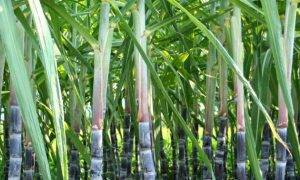Japan to Introduce Car Fuel with Up to 10% Biofuels from Fiscal 2028; Limited Rollout Expected at Areas with Refineries

Japan’s Economy, Trade and Industry Ministry will introduce gasoline mixed with up to 10% biofuels starting fiscal 2028, two years earlier than planned. The move targets transport sector decarbonization. Initially rolled out in areas with oil infrastructure, the fuel will use corn and sugarcane-based biofuels. The government aims for 20% blends by 2040, with carmakers and oil firms supporting the plan.
The Economy, Trade and Industry Ministry will from fiscal 2028 introduce a car fuel partly mixed with biofuels made from corn, sugarcane and other biomass.
The fuel, which would mix gasoline with up to 10% biofuels, will be available in selected areas and is expected to be introduced where oil refineries and oil tanks are located.
The plan is aimed at building momentum to decarbonize the transport sector, which is responsible for about 20% of the country’s carbon dioxide emissions. The ministry will include the policy in its action plan for introduction of biofuels, which will be announced at a forthcoming expert panel meeting.
The government initially drew up plans in November last year to start providing fuels containing up to 10% biofuel in fiscal 2030. About 40% of new vehicles sold in the country are compatible with the fuel mixture.
The ministry’s decision to introduce the fuels two years earlier is intended to identify potential issues regarding safety, quality maintenance and transport systems among others to allow the subsequent plans to go smoothly.
Areas where the fuel will be introduced will be decided on by autumn, and financial support will be provided for the costs involved, such as renovating fueling stations. The government has already received approval for the plan from oil wholesalers and carmakers.
To expand use of biofuels, it is necessary to raise its mixture rate even higher. The government is planning to ask carmakers to make all new vehicles compatible with mixed fuels with 20% biofuels in the early 2030s and intends to start providing such mixed fuels in fiscal 2040.
Biofuels are made from biological resources, such as corn and sugarcane. Biofuels emit CO2 when burned but they are regarded as making de facto contributions to decarbonization because CO2 is absorbed by their biological ingredients when they grow.
The use of biofuels is spreading worldwide. Countries such as Brazil and the United Kingdom have made it mandatory to offer mixed fuels containing a certain percentage of biofuels. Japan has a policy to procure biofuels from Brazil, the United States and elsewhere, but stable procurement and cost reduction will be problems to overcome if Japan is to make biofuels widely available.
To Read more about Ethanol Industry & Bio Energy News, continue reading Agriinsite.com
















